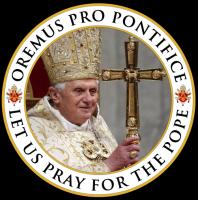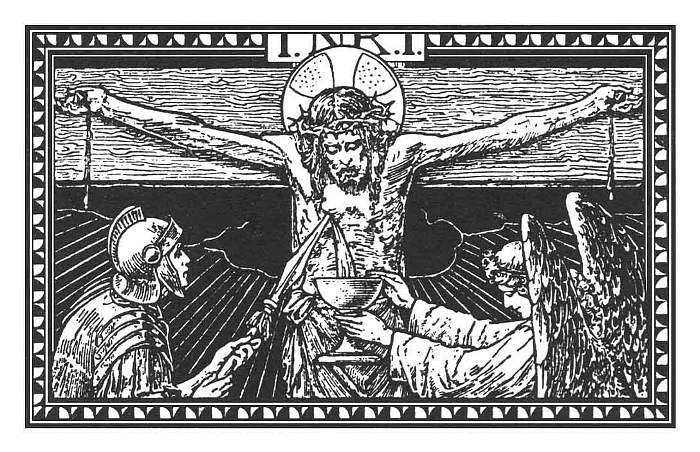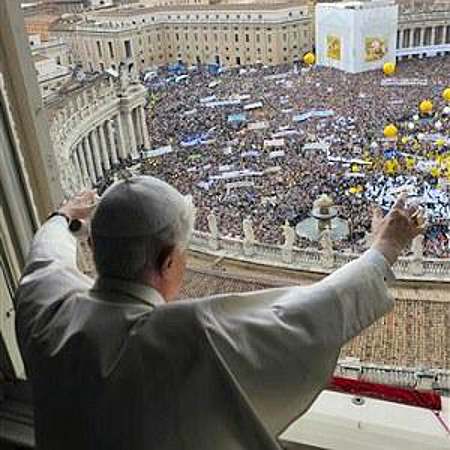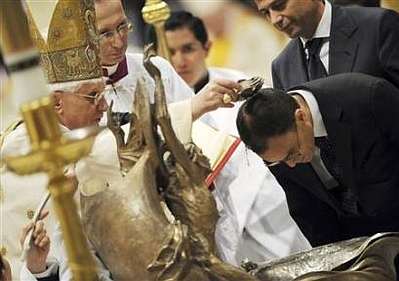Slik skriver John Allen om dagens messe på Petersplassen, messen som avsluttet ‘presteåret’:
… As he has on numerous occasions in the past, the pope apologized both to God and to the victims of abuse, and pledged to prevent such abuse in the future. “We insistently beg forgiveness from God and from the persons involved, while promising to do everything possible to ensure that such abuse will never occur again,” the pope said.
“In admitting men to priestly ministry and in their formation, we will do everything we can to weigh the authenticity of their vocation and make every effort to accompany priests along their journey, so that the Lord will protect them and watch over them in troubled situations and amid life’s dangers,” he said.
Had the “Year for Priests” been merely a celebration of the human performance of priests, Benedict said, it would have been ruined by the revelations of the sexual abuse crisis. Instead, he said, the crisis should make the church embrace its faith in God with new “courage and humility.”
Later, Benedict XVI invoked the image of the shepherd’s rod, saying that using the rod to correct those who go astray can be a “service of love.” The use of the rod, the pope said, clearly applies to taking a firmer hand on the sexual abuse crisis. “Today we can see that it has nothing to do with love when conduct unworthy of the priestly life is tolerated,” he said.
On other matters, Benedict XVI rejected a “functionalist” understanding of the priesthood, treating it as comparable to other jobs or professional roles. Instead, the pope insisted, the priesthood is not an office but a sacrament. Ultimately, he said, the priesthood expresses the “audacity of God,” who considers flawed men capable of “acting and being present in his stead.” … …
In addition to being firm on sexual abuse, the pope also called for greater vigilance about deviations from the faith. It has nothing to do with love, Benedict XVI said, “if heresy is allowed to spread and the faith twisted and chipped away, as if it were something that we ourselves had invented.” That remark likewise drew applause, the only other time the crowd this morning interrupted the pope’s homily to affirm a particular line.

 For tre år siden i dag (kl 12.00) ble pave Benediks brev motu proprio (på eget initiativ), der han ‘frigjorde’ den tradisjonelle latinske messen, offentliggjort. Selv hadde jeg da i flere måneder allerede tenkt mye på dokumentet som det ryktes skulle komme, og var svært ivrig etter å få høre hva det sa, og til å lære meg denne gamle messen (som jeg aldri hadde sett før, ikke en gang på video). Jeg kan ikke riktig forklare hvorfor jeg var så ivrig; det må ha vært noe som stemte med min liturgiske utvikling mer generelt.
For tre år siden i dag (kl 12.00) ble pave Benediks brev motu proprio (på eget initiativ), der han ‘frigjorde’ den tradisjonelle latinske messen, offentliggjort. Selv hadde jeg da i flere måneder allerede tenkt mye på dokumentet som det ryktes skulle komme, og var svært ivrig etter å få høre hva det sa, og til å lære meg denne gamle messen (som jeg aldri hadde sett før, ikke en gang på video). Jeg kan ikke riktig forklare hvorfor jeg var så ivrig; det må ha vært noe som stemte med min liturgiske utvikling mer generelt.

